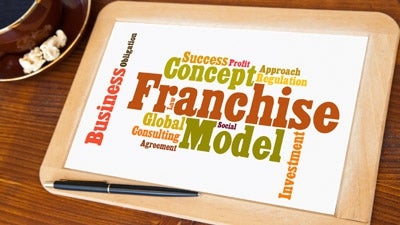
But a new book called The Solution Revolution, by William D. Eggers and Paul MacMillan, sees more than this in the franchise model. They point out that franchise model allows businesses to run leaner. Removing the costly trial and error, streamlining operations, leveraging new technologies and group buying power—all these factors mean that a franchise can operate better, with fewer resources.
According to Eggers and MacMillan, “lean franchises have played a transformation role in developing countries, offering a sturdy ladder out of poverty.” One example is elementary education in Kenya.
Kenya began offering free primary schooling to children in 2003, but it didn’t work out well. Prior to this initiative, more than half of the kids who started primary school dropped out before finishing. Many more didn’t even start, because the cost of attending school was prohibitive for so many families. When—with a large infusion of donated cash—schools became free in 2003, 1.4 million more children entered Kenya’s primary school system. The average size of a primary school rose from 340 to 400 immediately, and within six months schools were running out of materials. Overcrowding was perceived as a problem, and there were not enough textbooks to go around.
The Brookings Institution reported that teacher truancy was a problem in the public schools, and Eggers and MacMillan quantified it, saying that “when teachers show up, they spend on average only 90 minutes of the day on instruction.” This may not be the only issue with the public schools, but it quickly became clear that Kenya’s free school plan was not sustainable.
What’s more, the free schools still weren’t actually free. Desk fees, exam fees, and other types of fees charged by the schools meant that parents paid more than $3.00 a month for free schooling. Franchise private schools began to pop up in Kenya. They charged $4.00 a month, and provided predictable, consistent education for the children enrolled there as students.
The teachers at the franchise private schools are less educated and less experienced than those at the public schools—but they can still be successful, because the schools start with a “school in a box” including all the curriculum and teacher training needed for a successful school. The franchisors provide support for everything from construction to marketing and parents pay by smartphone, making it easy to keep up the income stream.
Like many other franchise businesses, the franchise schools have proprietary software which helps the franchisees manage the school effectively even though they have no experience when they start. And as with many franchise businesses, the franchisees of Kenya’s burgeoning private schools have the satisfaction of knowing that they’re doing something that helps their communities.
Franchise business owners in the U.S. may not be part of such a revolutionary change, but the streamlined nature of the franchise business model makes it workable in many situations.
This article was originally published by America’s Best Franchises
1966 Views












